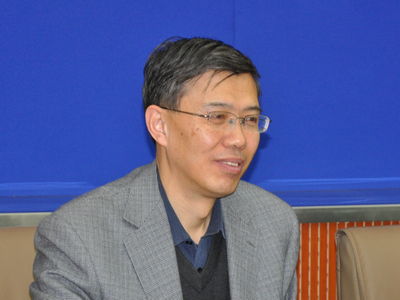GUO FAQI: What is good education?

Guo Faqi
On the topic of education, people are typically concerned with the relationship between personal development and “good education”. Views on what constitutes “good education” can vary considerably, however. Some may say the cornerstone of good education is to educate appropriately, but here, we have just transferred the ambiguity from the definition of “good” to the definition of “appropriate”. In fact, any kind of education can influence human development. The noted Brazilian education Paulo Freire famously argued that no educational process could be completely neutral. Is there any form that we can say for sure betters the development of human beings?
In western thought, as articulated by Aristotle, an enduring theory of education and human development combined physical, moral and intellectual education, which served as a basis for later thinkers. This served as a basis for later educationists and ethicists like Locke, Rousseau, and Pestalozzi, who elaborated on and enriched Aristotle’s views while maintaining that human development is a natural process, the innate order of which should be respected in any education regimen.
During the 19th century, thinkers began pondering education in terms of the relationship between the individual and society. Midcentury, Marx and Engels elaborated a conception of human development as “free development in The Communist Manifesto”, writing that “the free development of each is the condition for the free development of all”.
Following their argument, good education promotes free development. The litmus test for a society or education system’s health is its ability to grant each member a chance to develop freely and receive appropriate education. Of course, the “free development” idea proposed by classical Marxist writers assumes an ideal society. Though this may be hard to realize in modern society, it gives us a target for human development and education, and explores the utmost ideal human education can be achieved.
In modern society, the most essential part of education that enables free development is cultivating the abilities to think and criticize freely. These two abilities have different characteristics. The former is closely related to the pursuit and accumulation of knowledge; only through thinking without constraint, can the human spirit be liberated from its mental shackles. Through exercising the latter, people take opposing stances to entrenched doctrines, enabling them to question, criticize and overturn mistakes in free thinking. Together, both abilities serve as the guarantee for societal improvement.
Viewed from the perspective of history and present-day reality, a society needs the following conditions to cultivate the free thinking and criticism.
First, the primary step is to encourage people to explore new knowledge and to recognize the value of knowledge and facts. In earlier phases of civilization, the level of social development restricted the ability to think and criticize freely, limiting individuals’ acquisition of knowledge. This produced societies of passive thinkers lacking critical faculties.
Second, it needs tolerance for different opinions. Embracing various views and showing respect for the opposing ideas is a precondition for generating free thinkings. If a society tries to build uniformity of thought and lacks tolerance for individuality and creativity, it will not have the vitality necessary for development.
Third, a society needs to be open. There is no shortage of rhetoric encouraging societies that accept and celebrate cultural heterogeneity, and allow the coexistence of different ideologies. This attitude should extend to knowledge as well. The key is to make a clear distinction between right and wrong. Taking an appropriate perspective on knowledge also involves the relationship between individuals and knowledge, a subject-object relationship where the individual is the subject and knowledge the object. If knowledge becomes the solitary goal of human development, humans may end up being slaves to knowledge.
In modern society, good education greatly promotes free development, cultivates the abilities to think and criticize freely, and satisfies individual needs with emphasis on pertinence, richness and differentiation, rather uniformity, standardization and the absence of choice.
Guo Faqi is from the Institute of Education History and Culture, the Faculty of Education at the Beijing Normal University.
The Chinese version appeared in Chinese Social Sciences Today, No. 592, May 7, 2014
Translated by Ren Jingyun
Revised by Charles Horne
